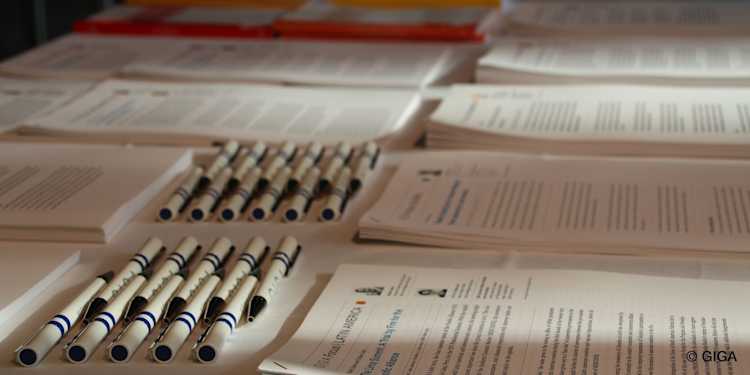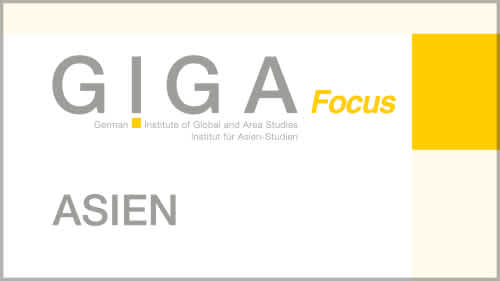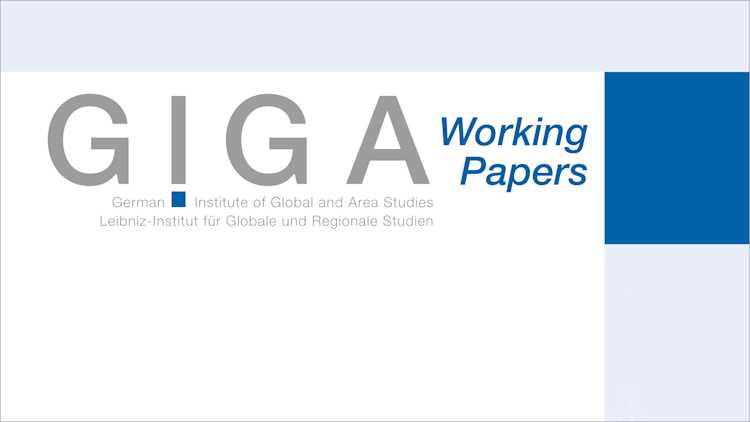- Home
- Publications
- GIGA Focus
- Think Tanks: The Quest to Define and to Rank Them
GIGA Focus International Edition English
Think Tanks: The Quest to Define and to Rank Them
Number 10 | 2013 | ISSN: 2196-3940
On 22 January 2014 the Think Tanks and Civil Societies Program at the University of Pennsylvania releases its latest “Global Go To Think Tanks Report.” This series of annual reports, launched in 2007, has been subject to substantial criticism from scholars working in or on think tanks.
Analysis
Over the past decade, various organizations and publications have started to rank think tanks, mostly at the national level. Top-ranked think tanks like to announce their standings in promotional material and on their websites. While such ranking Indexes help to draw attention to the growing think tank scenes across the globe and are thus to be welcomed, the existing rankings are fraught with problems; conceptual and methodological difficulties in particular are abound. Current attempts to rank think tanks therefore need to be approached with caution.
There is no agreement on what essentially defines a think tank. Many definitions have been offered, but not one is entirely satisfactory. Given the prevailing ambiguity and also vagueness of think tank conceptualizations, we often do not really knowwhich organizations should be considered thinks tanks and which ones should not.
The national contexts in which think tanks operate differ and so do the ways in which they perform their various activities and roles in pursuing their manifold missions. Think tank rankings at the regional or global levels are thus always dubious.
Output, public outreach or other performance-based criteria are usually offered to buttress think tank rankings, but these criteria are often not weighed or properly operationalized.
It is especially difficult to assess think tanks’ policy-oriented influence. Various rankings try to measure some of the output produced by think tanks – output that can be understood as “intermediary products.” Counting such products can help to get a better idea of think tanks’ visibility, but not of their actual impact on public policy.
Footnotes
Regional Institutes
Research Programmes
How to cite this article
Köllner, Patrick (2013), Think Tanks: The Quest to Define and to Rank Them, GIGA Focus International Edition English, 10, Hamburg: German Institute for Global and Area Studies (GIGA), http://nbn-resolving.de/urn:nbn:de:0168-ssoar-370407
Imprint
The GIGA Focus is an Open Access publication and can be read on the Internet and downloaded free of charge at www.giga-hamburg.de/en/publications/giga-focus. According to the conditions of the Creative-Commons license Attribution-No Derivative Works 3.0, this publication may be freely duplicated, circulated, and made accessible to the public. The particular conditions include the correct indication of the initial publication as GIGA Focus and no changes in or abbreviation of texts.
The German Institute for Global and Area Studies (GIGA) – Leibniz-Institut für Globale und Regionale Studien in Hamburg publishes the Focus series on Africa, Asia, Latin America, the Middle East and global issues. The GIGA Focus is edited and published by the GIGA. The views and opinions expressed are solely those of the authors and do not necessarily reflect those of the institute. Authors alone are responsible for the content of their articles. GIGA and the authors cannot be held liable for any errors and omissions, or for any consequences arising from the use of the information provided.






